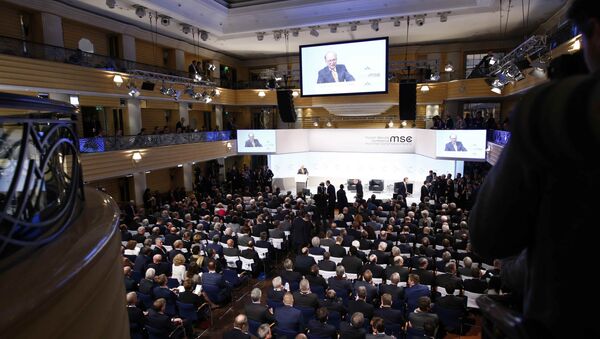Last year many of those who attended the Munich security conference were focused on what the new US administration has in store when it comes to security, military alliances and foreign policy.
But from the moment the US Vice President Mike Pence stepped on stage of the Bayerischer Hof conference hall in 2017, it was clear that contrary to Trump's campaign rhetoric, things under the new administration will stay pretty much the same, with the US confirming its dedication to supporting its NATO allies. However, there was also "a fly in the ointment" as Trump's administration requested all NATO member states to start paying equal share for defense in order to comply with their pledges.
READ MORE: Russia Ready for Partnership With EU, US Based on Mutual Respect — Lavrov
But one year later, things didn't change much. Just like it was in 2017, only a few countries meet the 2% defense spending requirements. Remarkably, at least one country on the list — Greece, has troubled relations with another North Atlantic Treaty Organization member — Turkey, and the other one — the UK — is in the process of "divorce" from its EU allies.
At #MSC2018, @theresa_may reminds the audience that the UK is the only EU member state that spends more than 2% of GDP on defense and 0.7% on ODA. See the overview in our #MSCreport. pic.twitter.com/NrRHuGNUJ8
— Security Conference (@MunSecConf) February 17, 2018
Another two countries on the list — Poland and Estonia, are known for their tough anti-Russian rhetoric. Both Polish and Estonian politicians seem to be able to talk endlessly about the "Big Russian Bear" threatening their security.
Russia, in turn, is very concerned with NATO's eastwards expansion and increased military buildup by its western borders.
MSC Chairman Wolfgang Ischinger calls Russian FM Lavrov “dear Sergey”, introduces him as a man who attended the Munich Conference for many years in a row (photo courtesy MSC) pic.twitter.com/i2UC6lv8hQ
— Denis Bolotsky (@BolotskySputnik) February 17, 2018
Russian foreign minister Sergey Lavrov, who attended the Munich Security Conference and held a series of bilateral meetings on the sidelines, said that Moscow wants peaceful relations with neighboring countries and blocs.
"We want to have a predictable EU, a strong EU, which would be a responsible player in foreign policy on the global scale. And we see this formation. Now, we should not paddle against the flow of history, and we should make the system of global relations just, with the central role of the United Nations."
While EU and NATO's new members in Eastern Europe and the Baltics may look like "grade A students", spending millions of Euros on their armed forces, many people in other countries, such as Germany, are not that happy with growing military spending.
READ MORE: EU Considers US Sanctions More Than Ambiguous — German Foreign Minister
Just a few blocks away from the MSC venue in Munich, hundreds of people were rallying against wars waged by the West.
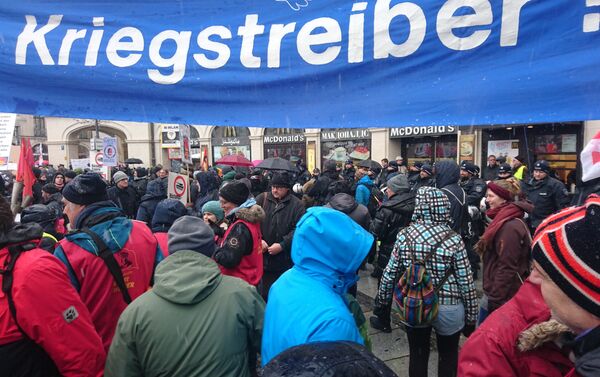
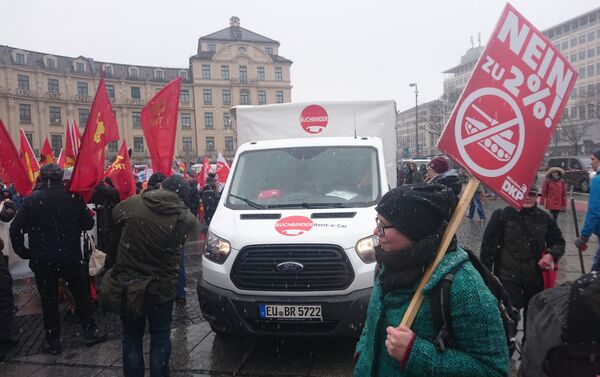
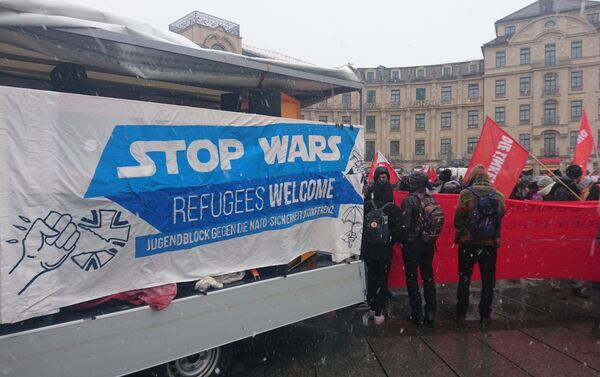
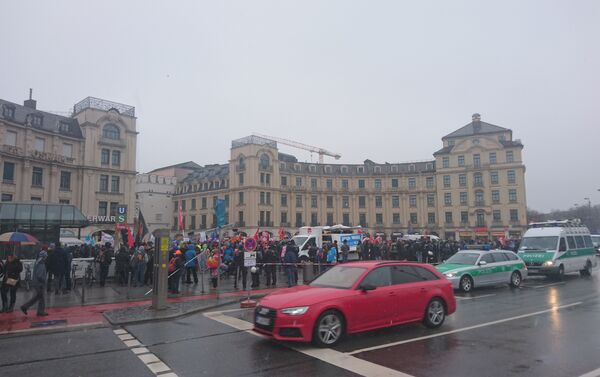
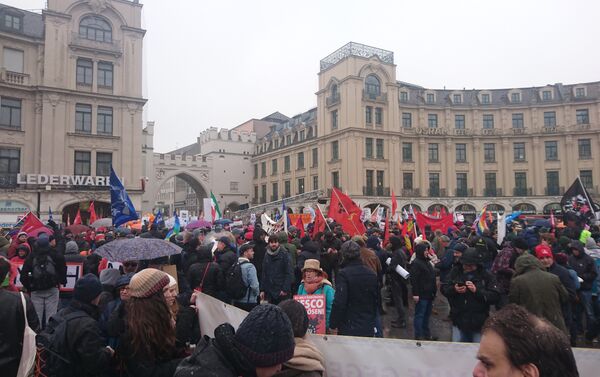
Some protesters, like Lena from Northern Bavaria, say that spending even 2% on defense is too much, mostly because the Western money and weapons may end up in the wrong hands:
"This money will be used to kill other people. Everywhere where NATO is at the moment, they are causing total chaos. And when they are gone — there are different terror groups. Ten years ago ISIS got weapons from former NATO groups. So these weapons are from Western countries. We need money for many other things, like education."
The Munich Security Conference was founded in 1963. It brings together international security policy decision makers from all over the world. This year's event is being attended by over 500 high-ranking leaders from the realm of international security.

